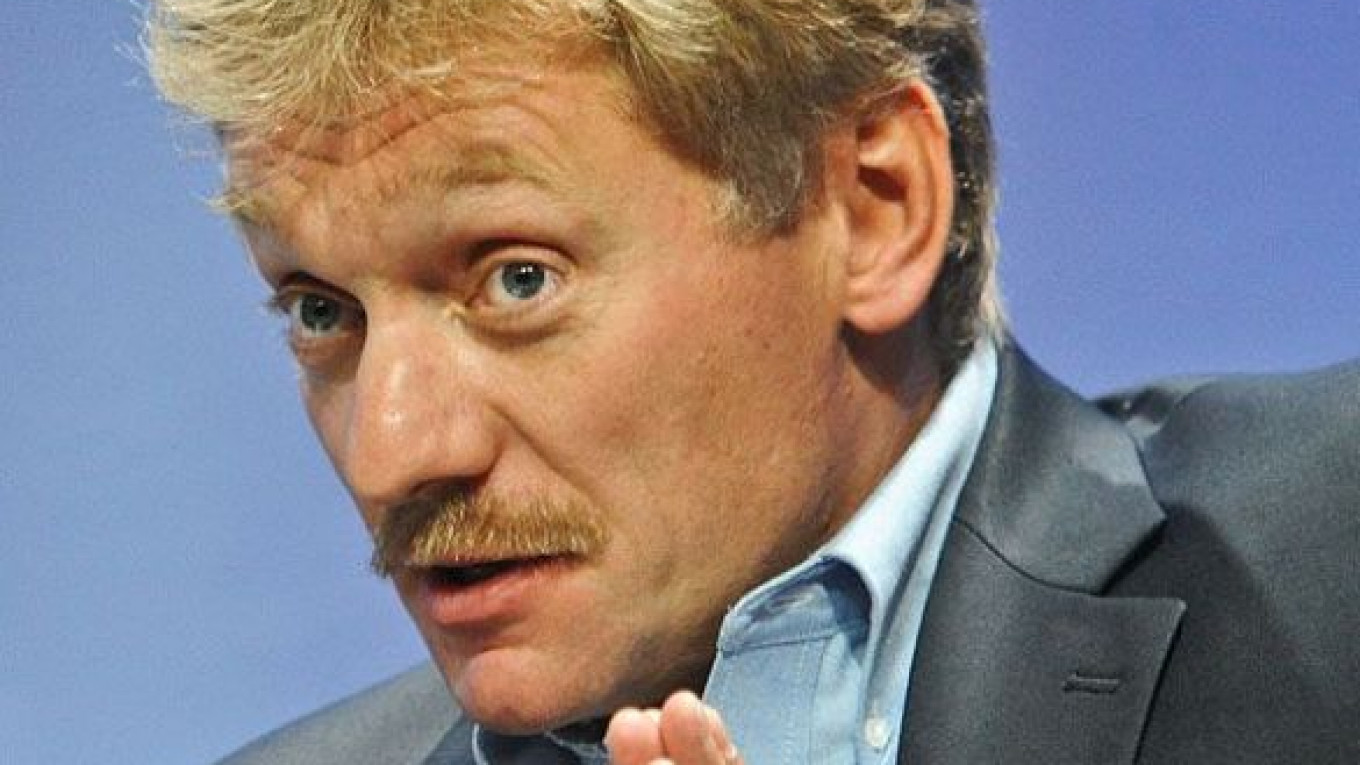President Vladimir Putin visited Germany on Sunday as local activists planned protests against Russian probes into nongovernmental organizations.
The demonstrations against the Russian leader were expectd to be held in the city of Hanover, where Putin was due to attend the opening of the annual Hanover Messe trade fair in the city together with German Chancellor Angela Merkel.
“Germany is our main European partner. Our [annual bilateral] trade amounts to $74 billion, and it continues to grow no matter what difficulties there might be,” Putin told German television channel ARD ahead of the visit on Friday. “I need to say that these are not just numbers; there are jobs behind these numbers, there is cutting edge technology behind them.”
Germany is the main European buyer of Russian energy. The country gets 30 percent of its oil and 40 percent of its gas from Russia, Reuters reported Sunday.
German politicians have criticized the Kremlin for raiding NGOs, with the Green Party’s Claudia Roth calling Putin a “despot.”
Putin, who spent years in East Germany as a KGB agent, is known to have an affection for the country.
But local human rights groups were expected to stage protests outside the expo against his visit. The demonstrations were to be devoted to recent raids by Russian law enforcement officials against NGOs, including two German ones.
Several German opposition politicians have criticized the Kremlin for those actions, while a co-chairman of the Green Party, Claudia Roth, called the Russian president a “despot” in an interview with Die Welt on the eve of Putin’s visit.
Last week, tax inspectors visited the Konrad Adenauer Foundation and the Friedrich Ebert Foundation in a move that the opposition said was an attempt to crack down on dissent.
Putin’s spokesman Dmitry Peskov told Interfax late last week that the president would be ready to discuss the NGO issue with Merkel.
“Putin will be ready to give explanations about all the issues in which the chancellor is interested,” Peskov said.
Sergei Utkin, a department head at the Institute for the Global Economy and International Relations, said Putin would not have a hard time discussing NGOs.
The probes did not target German NGOs specifically, he said.
“It will be enough for him to say that this topic is publicly discussed in Russia, and there is nothing particularly anti-German about it,” Utkin said.
He added that Putin was expected to use his visit to speak on Russian issues.
Putin has also used his German visits to address broader international issues. In 2007, while speaking at a conference in Munich, he lashed out at the United States for what he believed to be its hegemonic aspirations.
In 2001, he impressed the Bundestag when he addressed it in fluent German.
But Konstantin Frey, a German businessman, said his admiration for Putin had vanished after his business dealings in Russia.
“He opened up [Russia] to the West, and Germany helped him very much in his plans. But if you talk to [German] companies, they are still careful when doing business with Russia,” said Frey, who runs a small publishing house that promotes Russian cartoons on the German market.
“The laws are not stable and we cannot predict what will change next. I think Putin has now gone in the wrong direction,” Frey added.
After visiting Germany, on Monday Putin will go to the Netherlands, where he will meet Queen Beatrix and Prime Minister Mark Rutte for talks.
Russia and the Netherlands are expected to sign energy agreements during the visit. Trade between the countries amounted to $82.7 billion last year, up 20 percent year on year.
Relations between the Netherlands and Russia were recently marred in January by the death of Russian opposition activist Alexander Dolmatov. The activist, who was a member of the Other Russia party, had sought political asylum in Holland.
Eduard Limonov, leader of the Other Russia, told The Moscow Times on Sunday that the Dolmatov issue might be raised during Putin’s visit.
“It looks like the Netherlands is intentionally postponing the announcement of their findings regarding his death. I believe they might do that after the visit,” said Limonov, who thinks that local authorities are responsible for the activist’s death.
Contact the author at a.bratersky@imedia.ru
A Message from The Moscow Times:
Dear readers,
We are facing unprecedented challenges. Russia's Prosecutor General's Office has designated The Moscow Times as an "undesirable" organization, criminalizing our work and putting our staff at risk of prosecution. This follows our earlier unjust labeling as a "foreign agent."
These actions are direct attempts to silence independent journalism in Russia. The authorities claim our work "discredits the decisions of the Russian leadership." We see things differently: we strive to provide accurate, unbiased reporting on Russia.
We, the journalists of The Moscow Times, refuse to be silenced. But to continue our work, we need your help.
Your support, no matter how small, makes a world of difference. If you can, please support us monthly starting from just $2. It's quick to set up, and every contribution makes a significant impact.
By supporting The Moscow Times, you're defending open, independent journalism in the face of repression. Thank you for standing with us.
Remind me later.






